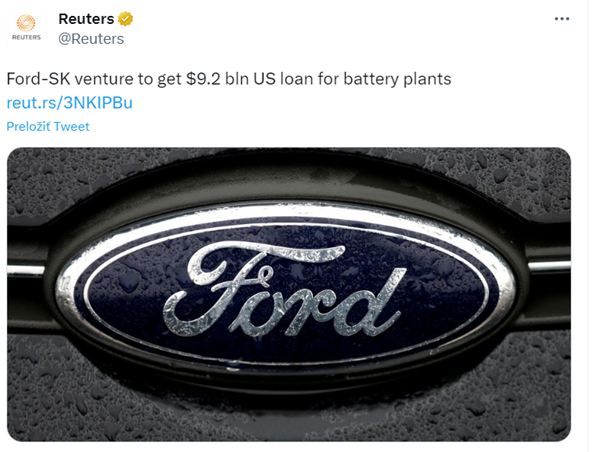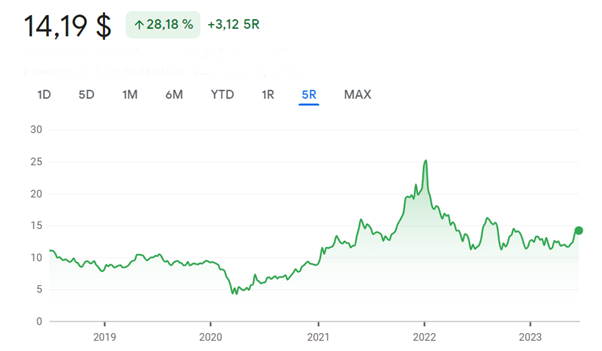The U.S. Department of Energy is set to provide a loan of up to $9.2 billion for a collaboration between automaker Ford Motor Company and South Korea's SK On to support the construction of three battery factories in the states of Tennessee and Kentucky. The loan from the government's Advanced Technology Vehicles Manufacturing (ATVM) program is the largest loan ever made.

Their joint venture, BlueOvalSK, focused on a generation of mobility that delivers a cleaner, more convenient way of transportation, plans to build two plants in Kentucky and one in Tennessee with a total annual production capacity of more than 120 gigawatt-hours. The collaboration between the two companies has previously seen Ford invest USD 11.4 billion to build an electric vehicle assembly plant and three battery plants in the US, with Ford contributing USD 7 billion. The move to build the new plants will bring 7,500 new operating jobs, is intended to accelerate major technological change and strengthen domestic supply chains. The recently enacted Inflation Reduction Act, which exempts up to $45 in taxes per kilowatt for battery manufacturing, will also help put companies on a more stable footing. In 2008, Ford received a similar $5.9 billion loan that was fully repaid in 2022, giving the company a sign of reliability in providing new support.
Ford is planning another round of layoffs in the coming months to improve efficiency and cut costs. Most of these layoffs will affect workers in the gasoline engine division, but also the electric vehicle and software departments. CEO Jim Farley pointed to the need to balance costs and invest heavily in the transition to electric models. Ford wants to cut costs by at least $3 billion by the mid-2020s. [1]

Ford's stock performance over the past five years. (Source: Google)
The stock has been doing well recently, up more than 20% in the last month alone.* This is due, among other things, to the company's collaboration with Tesla in the use of their Supercharger network, as well as new collaborations in the electric vehicle sector, which gives the company a favourable outlook in the market.
* Past performance is no guarantee of future results.
[1] Forward-looking statements are based on assumptions and current expectations, which may be inaccurate, or the current economic environment, which may change. Such statements are not guarantees of future performance. They involve risks and other uncertainties that are difficult to predict. Results may differ materially from those expressed or implied by any forward-looking statements.


